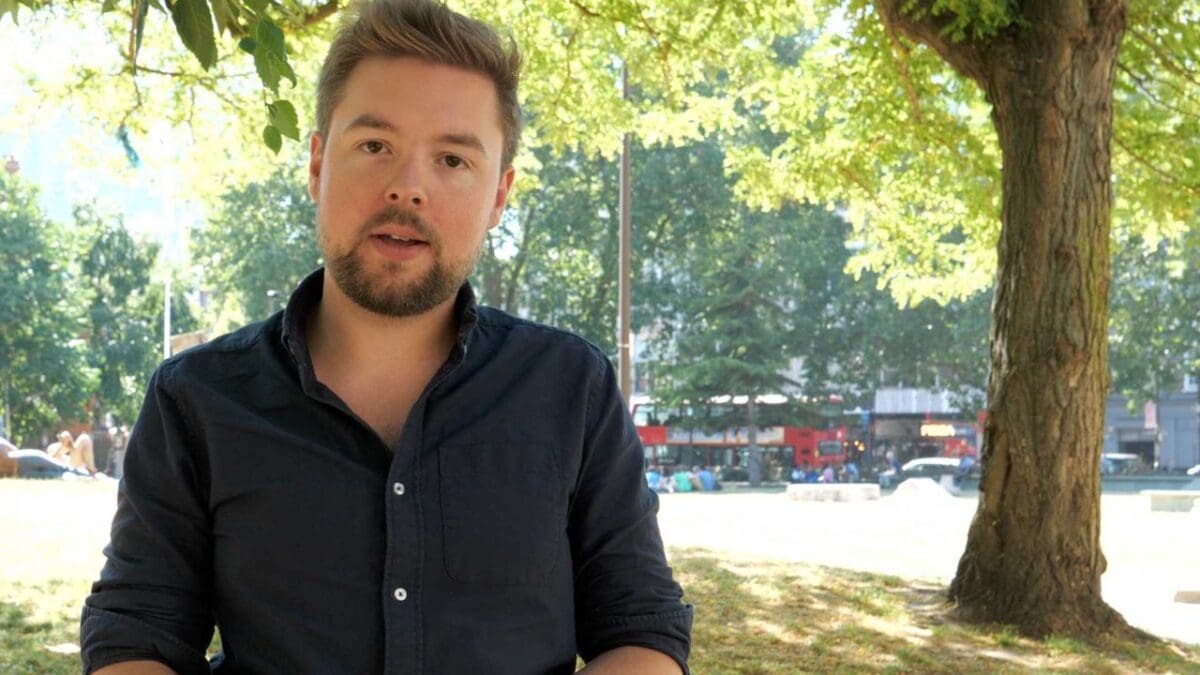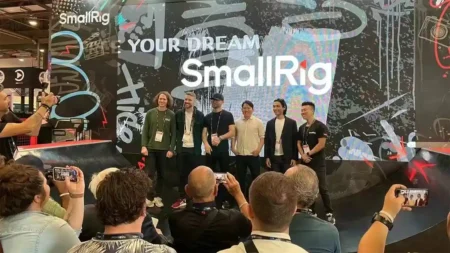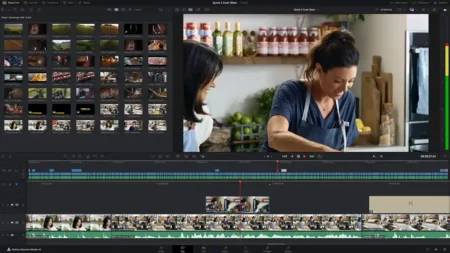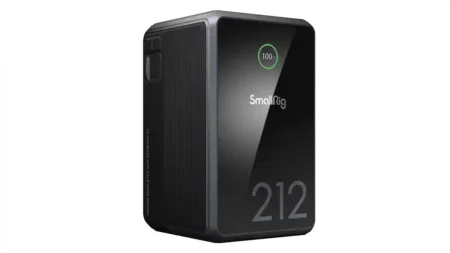Being a videographer or cinematographer can seem like a dream job for many people, but it’s a very competitive business. At the recent Wex Photo Video Show at the store in Commercial Road in London, I caught up with three professionals to find out how they got started and picked a few tips for aspiring video pros.
Diana Olifirova
Diana Olifirova is a cinematographer and director of photography (DOP) who works on narrative and commercial films. She originally intended to be a photographer but was unable to find a university course in Ukraine. This drove her to look at filmmaking and she found a course that included a lot of photography. It was during this course that she found her love of moving images.
In total Diana spent 7 years studying her craft, following her university degree with an MA from National Film and Television School in London. From there she started work, gradually building her reputation as storyteller with the ability to control light, colour and composition to create mood.
Diana now works with directors to help them create their vision, but she makes sure that every film is also hers. Her taste in colour, composition, light and props always comes through. Naturally, this can be challenging, but Diana likes to ask lots of questions and challenge the director to get to the heart of their joint vision.
For Diana, the location is the key to cinematography. It shapes the film. Her advice to an aspiring cinematographer is to learn to delegate and don’t let your crew get bored. Also, ask about the purpose of each scene and how it fits into the film so you deliver the best result you can.
Jeff Wood
According to Jeff Wood, he got into wedding and event videography by accident. He originally set-out to write a book but when this didn’t work he decided to shoot a documentary instead.
This lead to Jeff buy a Sony EX1. To justify the expense, he decided to start shooting weddings. At that time (2007/2008) wedding videography was in its very early stages. Lots of people were just sticking a camera on a tripod and hitting record for the duration. Jeff soon saw the gap in the market.
Jeff switched to shooting with the Sony A7S as soon as it became available. It was the electronic viewfinder (EVF) that really pulled him in, but he loved the small size as well.
These days he shoots with a Sony A7S II. And he’s stripped back his kit even further. In fact, he says that 90% of his work is shot on 1 camera body with the 24-105mm lens. He likes to keep things simple, and his advice to new videographers is that they do the same. It helps you enjoy the work more and you’ll produce better films as a result.
Tom Martin
From a young age Tom loved films and cinematography was his career choice from school. After graduating from university he bought himself a camera (Sony EX1) on Ebay and started work as a freelancer. However, the economic slump at the time made things tough. Tom realised that he needed more experience to attract the attention of directors.
Tom’s solution was to set-up a production company called Forward in 2010. After recruiting people who had the skills and experience he lacked at that time, he was able to deliver everything that most clients required.
Originally Tom’s intention was to learn from the people he worked with so he could get a job at a later date. But Forward developed into more than a steppingstone. In fact, it’s won several awards and has a healthy collection of clients – including Wex.
A lot of Forward’s work is commercial and Tom prides himself on using his storytelling skills to create engaging videos. He always aims to produce filmic results without overplaying the story.
Tom’s advice to anyone starting out as a cinematographer is to be prepared to work hard, it’s a very competitive market. Also, be prolific, make films all the time, just for yourself if you have no clients. And while you’re at it, try new things so you develop new skills and push yourself to improve.
He also stresses the importance of enjoying what you do. When you’re having fun it won’t seem like work and your enjoyment will come through in the films.



